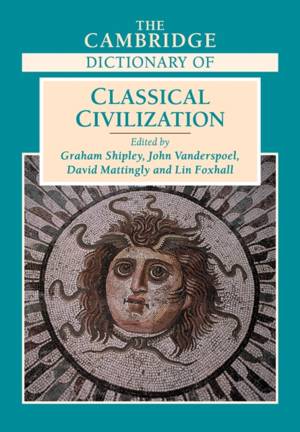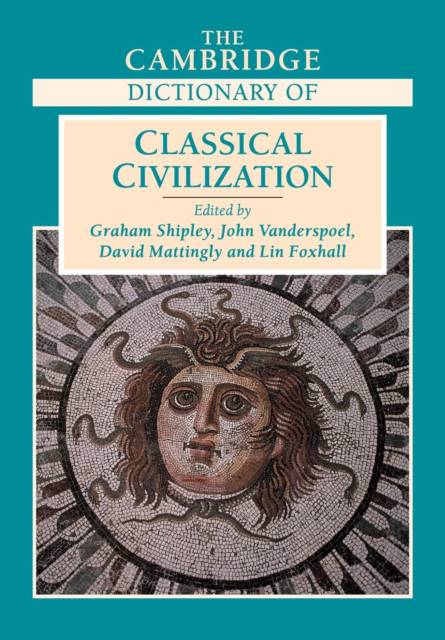
- Retrait gratuit dans votre magasin Club
- 7.000.000 titres dans notre catalogue
- Payer en toute sécurité
- Toujours un magasin près de chez vous
- Retrait gratuit dans votre magasin Club
- 7.000.0000 titres dans notre catalogue
- Payer en toute sécurité
- Toujours un magasin près de chez vous
The Cambridge Dictionary of Classical Civilization
Graham Shipley, John Vanderspoel, David Mattingly
Livre broché | Anglais
120,95 €
+ 241 points
Description
Few historical epochs have influenced the development of civilization to the extent that those of ancient Greece and Rome have. This Guide, with over 1700 entries and 500 illustrations, is a key reference work on both, covering all the main branches of ancient literature, art and institutions. In addition, it explores traditionally neglected areas such as dress, housing, minority groups and social relations. Ranging from post-Bronze Age Greece to the later Roman Empire, it surveys not only ancient Greece and Rome, but discusses those cultures with which Greeks and Romans exchanged information and culture (e.g., Phoenicians, Celts and Jews) as well as the remote peoples with whom they were in contact (e.g., Persia, China and India). Graham Shipley is a Fellow of the Society of Antiquaries of London, and chair of the Council of University Classical Departments as well as the Sparta and Laconia Committee of the British School of Athens. His publications include A History of Samos and The Greek World after Alexander. John Vanderspoel is Professor of Late Antiquity at the University of Calgary, where he was initially appointed in 1985. His publications include Themistius and the Imperial Court (1995) and numerous journal articles and chapters on Roman history, intellectual and religious developments in the Roman imperial period and Roman Britain. David Mattingly is a Fellow of the British Academy and Fellow of the Society of Antiquaries of London. His publications include monographs on Tripolitania (1995) and An Atlas of Roman Britain (2002); edited volumes including Economies beyond Agriculture in the Classical World (2001), Life, Death and Entertainment in the Roman World (1999), and Dialogues in Roman Imperialism (supplement to Journal of Roman Archaeology, 1997). Lin Foxhall is a Fellow of the Society of Antiquaries of London. Her publications include co-edited volumes on masculinity in the ancient world (Thinking Men and When Men were Men 1998), on ancient law (Greek Law in its Political Setting 1996), and the ancient economy (Money, Labour and Land 2002) as well as many journal articles and chapters on Greek social relations, gender, agriculture, field survey and economy.
Spécifications
Parties prenantes
- Auteur(s) :
- Editeur:
Contenu
- Nombre de pages :
- 1010
- Langue:
- Anglais
Caractéristiques
- EAN:
- 9780521731508
- Date de parution :
- 24-11-08
- Format:
- Livre broché
- Format numérique:
- Trade paperback (VS)
- Dimensions :
- 178 mm x 245 mm
- Poids :
- 1991 g

Les avis
Nous publions uniquement les avis qui respectent les conditions requises. Consultez nos conditions pour les avis.






